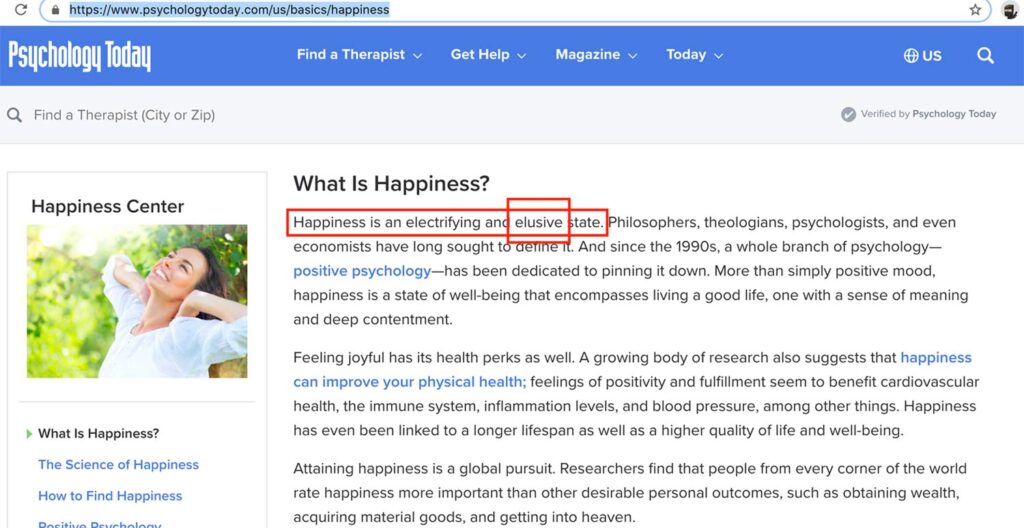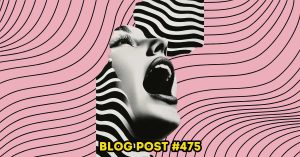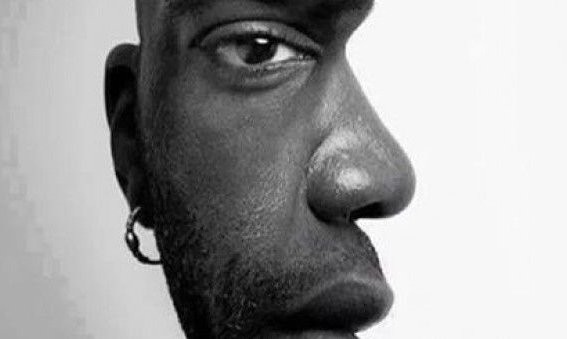
I can’t tell you how often I hear people say that happiness is elusive, impossible, and that we shouldn’t even try to be happy.
People (and even happiness experts) state that happiness is an elusive and fleeting state, as it can be hard to cultivate and even harder to maintain. However, what seems truly impossible is maintaining happiness forever, as even the best things in life eventually come to an end.
This is indeed a happiness paradoxical, as people say that above anything else in life they want to feel happy, but simultaneously struggle to hold onto the happiness they work so hard to cultivate.
However, happiness is still possible, and despite this paradox of happiness, I call the solution to this elusive happiness Optimal Happiness. By optimizing our lives towards our best selves, we can learn to be happy today and forever. This allows us to continue feeling happy even when things aren’t going our way, even when there seems to be no reason to be happy, and even when everyone else may have given up on their own happiness.
Here, I’m not referring to some toxic positivity where people are delusionally happy, which can result in harmful actions towards oneself and others. Instead, we can reach our happiest potential by following a scientifically proven approach and becoming our best selves. This, in turn, addresses the “happiness is elusive” paradox of happiness.
This is how it works:
Elusive Happiness Myth
Since I discovered Optimal Happiness and integrated it into my life, I have become increasingly concerned about the widespread mental health epidemic. Countless individuals express feelings of anxiety, stress, and depression, claiming that happiness is elusive, it is difficult to attain, and impossible to keep.
- Happiness seems hard to cultivate in our lives.
- Even when we are happy, our reasons to be happy change and often disappear.
- It only seems to be a matter of time before we become unhappy again, which is why we call happiness “elusive.”
Even many happiness experts share this opinion:
Happiness is an electrifying and elusive state.
states Psychology Today, one of the internets biggest mental health experts in the world day.

Darrin M. McMahon author of Happiness: A History states that:
For how to write a history of something so elusive, so intangible—of this “thing” that is not a thing, this topic, this yearning, this dream? As another German philosopher, Immanuel Kant, rightly observed, “the concept of happiness is such an indeterminate one that even though everyone wishes to attain happiness, yet he can never say definitely and consistently what it is that he really wishes and wills.” It is disconcerting for any author to be forced to admit the difficulty—perhaps impossibility—of even defining the subject of this inquiry. And is more daunting still to know that countless men and women have spend their entire lives searching for this very “thing,” only to have it elude their grasp.
(McMahon, 2006, p. xi)
However, just because our reasons for happiness can change and disappear overtime, it doesn’t mean that we can’t still be happy, as
The danger of Defining Happiness as “Elusive”
It may sound innocent to call happiness “elusive.” No harm was done, right? I disagree. There are numerous misconceptions and limiting beliefs about happiness that are circulating the world, each of them limiting our ability to be happy to the degree that we believe in them. So if we believe that we can’t reach Optimal Happiness, it becomes a self-fulfilling prophecy. After all, Henry Ford once said,
Whether you think you can or you think you can’t, you’re right.
In this way, if we believe that happiness is elusive, we will never give our 100% to try to be happy. After all, why bother? And yet, every day we spend countless time, money, and energy pursuing this state, while we also believe that it is impossible to be happy? Something is wrong here.
The Origin of “Happiness is Elusive“ Myth
The main reason why we believe happiness is elusive is that we are looking for happiness in all the wrong places. Specifically, today, society tells us that all sorts of products will make us happier (or less sad). It tells us to buy more nice clothes, get married faster, and buy a newer car. While all of these things may correlate with happiness, it is also true that everything correlates with happiness.
However, although everything correlates with happiness, not all correlations are equal. Some things are more likely to make us happier (or less sad) than others. In other words, the key to Optimal Happiness lies in understanding which actions are most likely to impact our happiness.
For example, eating cake may bring us pleasure in the moment, but it can also contribute to long-term weight gain. Similarly, going to the gym may cause temporary discomfort, but it will ultimately lead to the body we desire, resulting in higher life satisfaction.
In other words, people often tend to focus on short-term emotions like happiness, even though these emotions tend to fade quickly. This leads some individuals to behave like emotional junkies, constantly seeking happiness in small ways such as checking social media, buying unnecessary things, and overall looking for happiness in all the wrong places. They then claim that happiness is elusive and that they can never truly be happy, when in reality, they are just following a broken and outdated model of happiness.
The End of Elusive Happiness
Oppositely, Optimal Happiness assumes that true and unconditional happiness is possible if only you follow the correct formula, which realistically is the first step to becoming happy today and forever. After all, if we know that happiness is possible, we become solution-oriented rather than victims of our circumstances. We find happiness wherever we go and feel happy regardless of who people are, where they are from, and what their life circumstances may be.
This is indeed the lesson of the blog, my book Optimal Happiness: The Fastest & Surest Way to Reach Your Happiest Potential, and one of the main point I teach to hundreds of students who have completed the Optimal Happiness training.
You, too, can learn to be happy today and forever, challenging the “happiness is elusive” paradox and anyone who tells you that happiness is impossible for one reason or another. Instead, you can find reasons why and ways to be happy in any situation.
Now, that is true happiness to desire.















4 thoughts on “Happiness is NOT Elusive: Here is Why”
Pingback: Dr Strange asks "Are You Happy?” in Multiverse of Madness
Pingback: I've Read 100+ Books on Happiness. Here is What I Found
Pingback: Forget the "Pursuit of Happiness." Be Happy Now.
Pingback: What is Happiness? Short & Simple Definition of Happiness